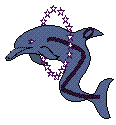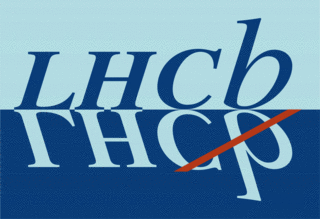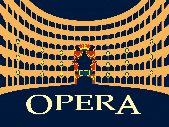DoubleElectron primary dataset in AOD format from Run of 2012 (/DoubleElectron/Run2012B-22Jan2013-v1/AOD)
/DoubleElectron/Run2012B-22Jan2013-v1/AOD, CMS collaboration
Cite as: CMS collaboration (2017). DoubleElectron primary dataset in AOD format from Run of 2012 (/DoubleElectron/Run2012B-22Jan2013-v1/AOD). CERN Open Data Portal. DOI:10.7483/OPENDATA.CMS.S0H8.LBD3
Data recorded in 2012 and published in 2017Dataset Collision CMS 8TeV pp CERN-LHC
Description
DoubleElectron primary dataset in AOD format from RunB of 2012. Run period from run number 193833 to 196531.
The list of validated runs, which must be applied to all analyses, can be found in
CMS list of validated runs Cert_190456-208686_8TeV_22Jan2013ReReco_Collisions12_JSON.txt
Dataset characteristics
23571931 events. 1643 files. 5.8 TiB in total.System details
FT53_V21A_AN6CMSSW_5_3_32
Recommended container image for analyses is available in the following locations (see guide):
docker.io/cmsopendata/cmssw_5_3_32-slc6_amd64_gcc472:latestgitlab-registry.cern.ch/cms-cloud/cmssw-docker-opendata/cmssw_5_3_32-slc6_amd64_gcc472:latest
How were these data selected?
Events stored in this primary dataset were selected because of the presence of at least two high-energy electrons in the event.
Data taking / HLT
The collision data were assigned to different RAW datasets using the following HLT configuration.
Data processing / RECO
This primary AOD dataset was processed from the RAW dataset by the following step:
Step: RECO
Release: CMSSW_5_3_7_patch5
Global tag: FT_R_53_V18::All
Configuration file for RECO step reco_2012B_DoubleElectron
HLT trigger paths
The possible HLT trigger paths in this dataset are:
HLT_DoubleEle10_CaloIdL_TrkIdVL_Ele10_CaloIdT_TrkIdVL
HLT_Ele15_Ele8_Ele5_CaloIdL_TrkIdVL
HLT_Ele17_CaloIdL_CaloIsoVL
HLT_Ele17_CaloIdT_CaloIsoVL_TrkIdVL_TrkIsoVL
HLT_Ele17_CaloIdT_CaloIsoVL_TrkIdVL_TrkIsoVL_Ele8_CaloIdT_CaloIsoVL_TrkIdVL_TrkIsoVL
HLT_Ele17_CaloIdT_CaloIsoVL_TrkIdVL_TrkIsoVL_Jet30
HLT_Ele17_CaloIdVT_CaloIsoVT_TrkIdT_TrkIsoVT_Ele8_Mass50
HLT_Ele20_CaloIdVT_CaloIsoVT_TrkIdT_TrkIsoVT_SC4_Mass50
HLT_Ele23_CaloIdT_CaloIsoVL_TrkIdVL_TrkIsoVL_HFT30
HLT_Ele27_CaloIdT_CaloIsoVL_TrkIdVL_TrkIsoVL_Ele15_CaloIdT_CaloIsoVL_trackless
HLT_Ele27_CaloIdT_CaloIsoVL_TrkIdVL_TrkIsoVL_HFT15
HLT_Ele32_CaloIdT_CaloIsoT_TrkIdT_TrkIsoT_SC17_Mass50
HLT_Ele5_SC5_Jpsi_Mass2to15
HLT_Ele8_CaloIdL_CaloIsoVL
HLT_Ele8_CaloIdT_CaloIsoVL_TrkIdVL_TrkIsoVL
HLT_Ele8_CaloIdT_CaloIsoVL_TrkIdVL_TrkIsoVL_Jet30
HLT_Ele8_CaloIdT_TrkIdVL
HLT_Ele8_CaloIdT_TrkIdVL_EG7
HLT_Ele8_CaloIdT_TrkIdVL_Jet30
HLT_Photon22_R9Id90_HE10_Iso40_EBOnly
HLT_Photon36_R9Id90_HE10_Iso40_EBOnly
HLT_Photon50_R9Id90_HE10_Iso40_EBOnly
HLT_Photon75_R9Id90_HE10_Iso40_EBOnly
HLT_Photon90_R9Id90_HE10_Iso40_EBOnly
HLT_TripleEle10_CaloIdL_TrkIdVL
How were these data validated?
During data taking all the runs recorded by CMS are certified as good for physics analysis if all subdetectors, trigger, lumi and physics objects (tracking, electron, muon, photon, jet and MET) show the expected performance. Certification is based first on the offline shifters evaluation and later on the feedback provided by detector and Physics Object Group experts. Based on the above information, which is stored in a specific database called Run Registry, the Data Quality Monitoring group verifies the consistency of the certification and prepares a json file of certified runs to be used for physics analysis. For each reprocessing of the raw data, the above mentioned steps are repeated. For more information see:
CMS data quality monitoring: Systems and experiences
The CMS Data Quality Monitoring software experience and future improvements
The CMS data quality monitoring software: experience and future prospects
How can you use these data?
You can access these data through the CMS Open Data container or the CMS Virtual Machine. See the instructions for setting up one of the two alternative environments and getting started in
Running CMS analysis code using Docker
Files and indexes
Disclaimer
These open data are released under the Creative Commons Zero v1.0 Universal license.
Neither the experiment(s) ( CMS ) nor CERN endorse any works, scientific or otherwise, produced using these data.
This release has a unique DOI that you are requested to cite in any applications or publications.







